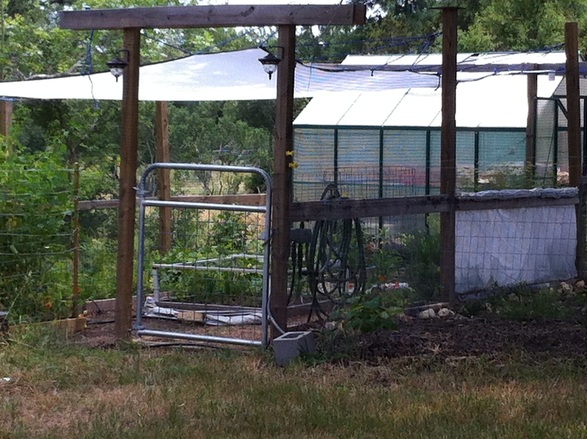1. Ensure animals have an abundant and consistent supply of water.
Allowing your animals to go for even short periods of time without access to water not only causes them to stress as a least worst case scenario, it will impact egg production, milk productions and growth rates.
Automatic waterers/drinkers are a huge help, but be sure to check them frequently. Small ones, such as those used for poultry, can be easily bumped and accidentally turned off. In addition, malfunctions do occur. Be sure to dump out and clean the drinking fountains frequently, as the heat of summer promotes algae growth as well as minimize mosquito larvae. A scrub brush kept at various water stations will help ease the task. Check pipes, hoses, connections and floats to ensure proper operation.
Larger waterers such as those for goats should be dumped and scrubbed frequently. Toilet bowl brushes work great for this.
The use of barley straw in burlap bags works well to control algae. Commercially known as Stock Tank Secret, they are safe for livestock and fish and you can either make your own or they can be purchased at local feed stores for about $5. It lasts about 2 months. If you start with a dirty trough, it looks worse before it starts to clear, but eventually the algae is gone. One bag can process up to a 200 gal trough. However, other problems such as mosquito larva and tadpoles will still need to be addressed, so it's almost impossible to eliminate changing the water altogether.
2. Electrolytes and minerals are always important, but even more so during hotter months.
As the temperatures rise, so does an animal's susceptibility to heat exhaustion. Livestock that is trembling, breathing rapidly and shallowly and has a rising body temperature, it is likely the victim of heat exhaustion. Provide plenty of clean, cool, clear water; shade, minerals and electrolytes.
3. Chickens are particularly susceptible to heat stress.
Make sure in addition to water, birds have plenty of covered areas out of the soon with good air ventilation. Birds standing with their wings raised and panting are trying to dissipate heat. This is the first sign of heat stress. Humidity is also a large contributing factor to heat stress. Mounting fans outside the cage and using water misters will help to keep birds cool.
4. Use shade cloths to shield the garden during peak summer months.
If your garden is in a sunny area with no shade during multiple hours of the day with direct sun, a UV filter shade cloth hung over the garden will help alleviate plants' heat stress as well as prevent soil moisture from evaporating as rapidly. Be sure to check irrigation systems frequently along the lines and at drip and sprinkler locations. One fault in the line can result in multiple plants being damaged.


 RSS Feed
RSS Feed
